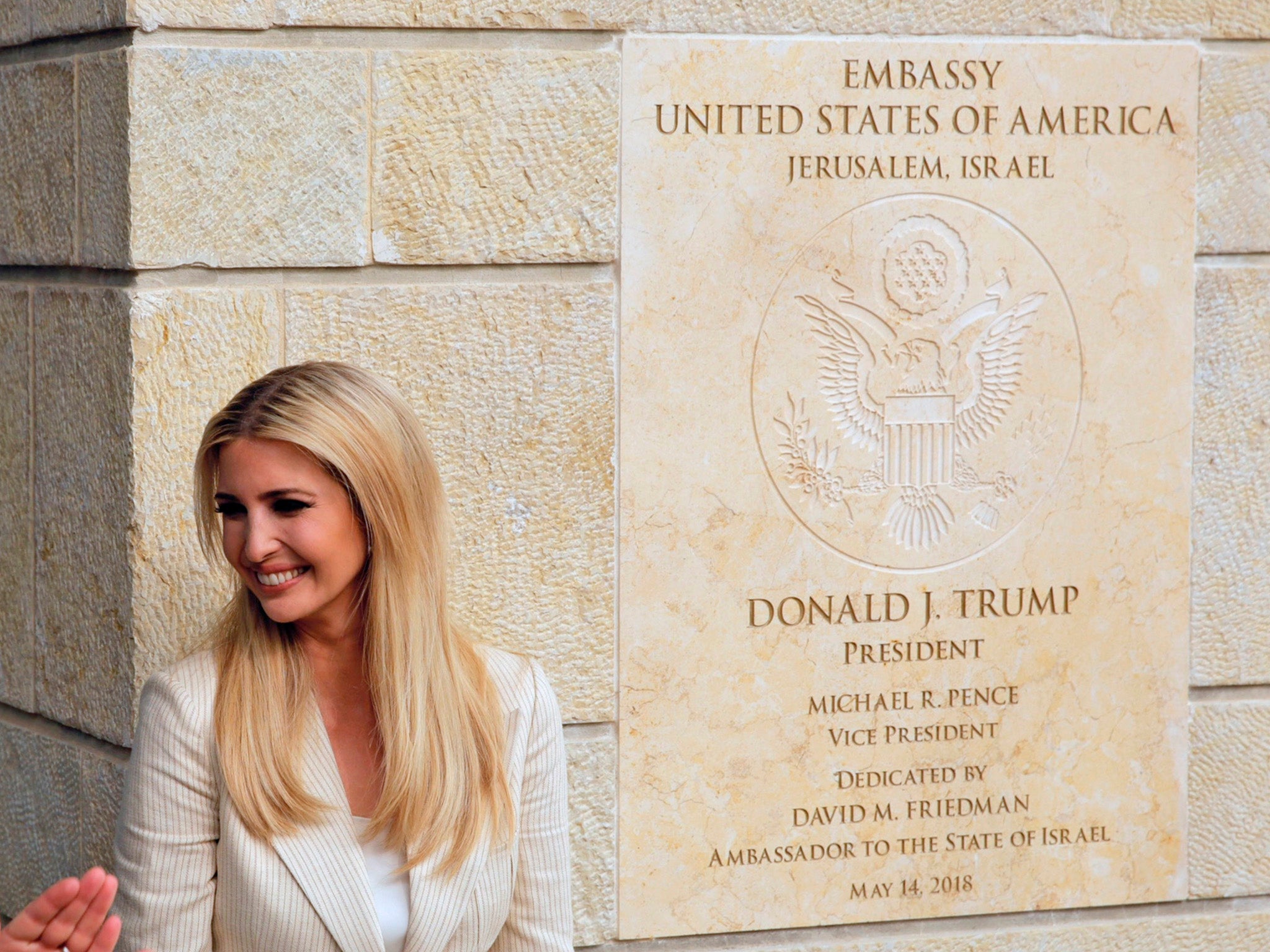Trump moving the US embassy to Jerusalem may cause a chain reaction in the Middle East that he can’t control
The outlook in the region, so rarely optimistic, is dismal for peace, the scene set for intensification or the extension of the proxy wars and campaigns of terror beyond their present borders of geography and ferocity

It is easy, and often correct, to dismiss President Trump’s initiatives in foreign affairs as dangerous, ill-judged, badly timed and about as ill-informed as it is possible for them to be.
The decisions to relocate the US embassy in Israel to Jerusalem, and to recognise the city as the capital of the Israel, provides ample evidence for that view. Already dozens of people have died as a direct, immediate consequence of this high profile and highly provocative move. It was all entirely predictable, which makes it so much the more unforgivable, though the speed with which the Israeli Border Police moved through their armoury from teargas to rubber bullets and then live rounds was perhaps surprising, even for them. It was, so far as can be judged, a disproportionate response driven by the need to maintain appearances for the sake of the various dignitaries gathered for this move. It had the opposite effect.
Despite the pomp and circumstance, the presence of the president’s daughter and son-in-law (a surely unprecedented use of the first family on highly politicised diplomatic business) and the video message from Donald Trump himself, this was in truth a lonely little ceremony. For the rest of the world has not, and will not, recognise Jerusalem as the “eternal capital of the Jewish people” as the various Trumps put it. Not only has the move divided and inflamed emotions in the region, and built more hostility towards Christianity, but it has appalled America’s friends in the West, and, inasmuch as either side care, Russia and China.
The Trumpian rhetoric about a “strong commitment to peace” sounded especially empty when juxtaposed on the split-screen rolling global news coverage with the scenes of burning, shooting and ambulances around the occupied territories. Briefings about a Trump Middle East peace plan sounded almost an act of sarcasm in the circumstances, and there is now open talk of a third intifada.
Moreover, the embassy move comes swiftly after America’s withdrawal from the Iranian nuclear deal, the Joint Comprehensive Plan of Action (JCPOA), which will merely encourage Iran to go nuclear, if only to balance Israel’s missiles. If the United States wanted to consciously set the Shia against the Sunni world and then overlay that with a boost for Israel’s increasingly close-combat conflict with Iran, they could hardly have mapped out a more effective roadmap than the last few weeks’ diplomacy.
So the outlook in the region, so rarely optimistic, is dismal for peace, the scene set for intensification or the extension of the proxy wars and campaigns of terror beyond their present borders of geography and ferocity. Isis, driven out of much of Iraq and Syria, is already starting to operate closer to Israel, and a third intifada would provide all the motivation they require to regroup and renew their murderous efforts. They are adept at exploiting grievances, and what some might perceive as a diplomatic US-Israeli annexation of the holy site of Jerusalem provides a particularly painful one.
The consequences are all too clear. Conflict in Lebanon, long feared, now also looks increasingly inevitable, and the war in Yemen will continue, as will Turkey’s war of attrition against Kurdistan, while the coming peace in Syria is merely the quiet of a graveyard, and not necessarily sustainable, even with Russia’s brand of ruthlessness backing President Assad. Somalia, Egypt and Libya remain unstable, Qatar is blockaded by its Gulf neighbours and Crown Prince Mohammad bin Salman of Saudi Arabia is running risks with his own conservative theocrats in the name of modernisation and crushing the Houthi rebels.
The Middle Eastern “order” has never been closer to collapse.
The best that can be said for Mr Trump’s Jerusalem policy is that it somehow shocks the Palestinians towards a lasting settlement, and with that might come a wider lowering of regional tension. The idea is that it is such an act of naked partisanship towards Israel that the Palestinians become so dispirited that they beg the Americans and Israelis to offer them any kind of “peace” deal – an “unequal treaty” under duress.
This – the logic runs – they will then accept as gracefully as they can for fear of worse to come – yet more humiliations and cruelties being heaped upon them, until they have no rights, territory or independence left – and they capitulate.
Yet that has not been the lesson of history so far: occupation, illegal settlements, the wall, trigger-happy Israeli soldiers – all have merely pushed peace further out of sight. Besides, the likes of Isis and other groups will offer different methods to defeat the Israelis, as politics and confidence in the United States is seen to have failed. There will be no shortage of “martyrs”.
Any single one of the pitiless wars now burning their way through the Middle East has the potential to run out of control and towards an all-out conflagration, escalating, most likely accidentally, to direct fighting among the regional superpowers, including nuclear and wannabe nuclear states. What would an Israel-Iran nuclear war do for American security interests? Will Mr Trump tell us that?
So it is difficult to envisage that the security of the United States or of Israel will be much improved by the US withdrawal from the JCPAO and the embassy move, and all too easy to see how more innocent peoples of every nationality and religion will lose their lives or find themselves homeless through war and terror. There will be more casualties, more refugees and more misery. It need not have been so. We will know who to blame.

Join our commenting forum
Join thought-provoking conversations, follow other Independent readers and see their replies